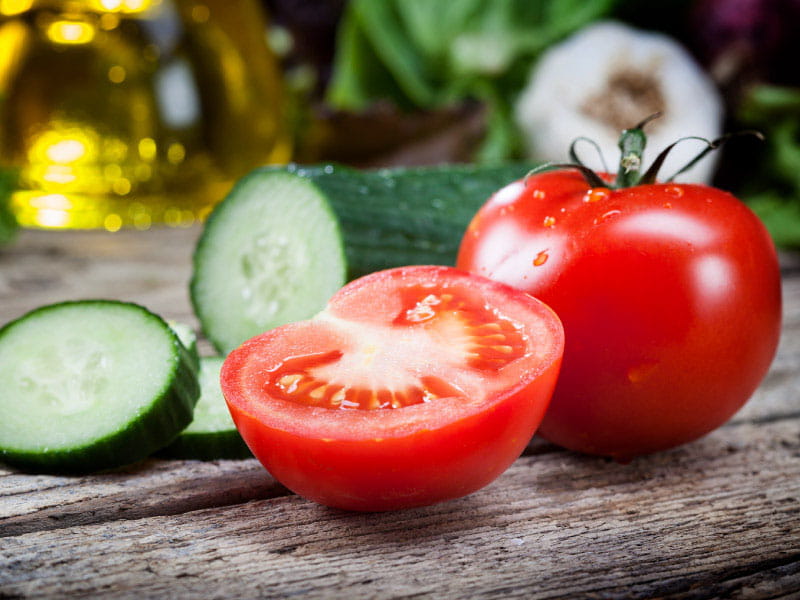Beat the heat with hydrating foods this summer
By Laura Williamson, American Heart Association News

Staying hydrated can help you live a longer, healthier life. But drinking multiple glasses of water throughout the day isn't for everyone.
Health experts say that's OK. While fluids are important, hydration doesn't just come in a bottle or from the tap. In fact, at least 19% of a U.S. adult's water intake typically comes from water-rich foods. And they're not hard to find.
"A lot of foods are high in water content, especially fruits and vegetables," said Penny Kris-Etherton, Evan Pugh University Professor of Nutritional Sciences at Penn State University in University Park, Pennsylvania. "Eating these foods is a way of helping to maintain good hydration status."
Though it has no calories, water plays a vital role in keeping people healthy. It prevents dehydration, helps rid the body of waste products, lubricates joints, protects the spinal cord, helps to keep body temperature in the normal range, helps manage body weight and can help reduce calories when substituted for sweetened beverages such as soda or iced tea.
The National Academy of Medicine recommends men consume 13 8-ounce glasses of water per day and women consume nine, more if they are pregnant or breastfeeding. Dehydration occurs when people don't consume enough, and symptoms may appear with a water deficit as low as 2% under the recommended amount. Symptoms may include fatigue, confusion or short-term memory loss and mood changes such as irritability or depression.
The important thing is to stay hydrated, Kris-Etherton said – regardless of where the water comes from.
When looking for water-rich foods, head straight to the produce department, said Georgia Jones, an associate professor in the nutrition department at the University of Nebraska in Lincoln.
"Aim for fruits and vegetables that contain at least 85% water," she said.
Cucumbers top the list, at about 95% water, Kris-Etherton said. They're also low in calories while high in fiber and vitamins K and A.
"The neat thing about fruits and vegetables is they bring with them some important nutrients in addition to water," she said.
Tomatoes are another good source for hydration, along with cantaloupe, honeydew and watermelon. Also water-rich are celery, peaches, zucchini, radishes and asparagus. "And lettuce can also provide a good amount of water," Jones said.
Snacking on fruit is a good way to get the extra hydration needed after exercise or other activities that cause a lot of perspiration, Kris-Etherton said. But don't forget to drink water.
When choosing foods for hydration – or any other purpose – Jones said it's important to seek a wide variety. "Don't stick with just one kind. Be willing to try new things."
What's not good for hydration are drinks that contain alcohol or caffeine, including many popular energy drinks, Kris-Etherton said. "They can worsen dehydration. And sports drinks often contain a lot of sugar. They're really not a good source of fluid for staying hydrated. You need to read the labels."
But remember that fruits and veggies can't completely replace daily fluids, Kris-Etherton said. If a 100-gram cucumber is 95% water, that's 95 grams or 3.3 of the recommended 72 ounces of water per day for women.
"You'd be eating a lot of cucumbers," she said.





